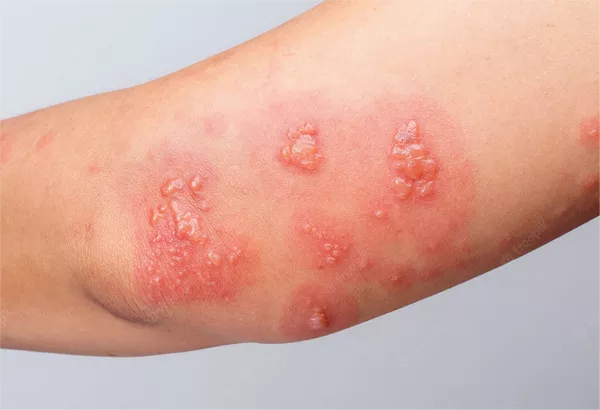Shingles, caused by the varicella-zoster virus, is a painful and potentially debilitating condition that can pose significant risks to pregnant women and their unborn babies. While shingles itself does not directly harm the fetus, the complications and treatments associated with the condition can impact both maternal and fetal health. In this article, we will delve into the risks of shingles during pregnancy, safe treatment and management options, and strategies for prevention.
Risks of Shingles during Pregnancy:
1. Potential Risks to the Mother:
Shingles manifests as a painful rash typically occurring on one side of the body. The virus responsible for shingles is the same virus that causes chickenpox. After a person recovers from chickenpox, the virus remains dormant in the body’s nerve tissues. However, under certain conditions such as stress, illness, or weakened immunity, the virus can reactivate, leading to shingles.
For pregnant women, the discomfort of shingles is compounded by the potential for complications. One such complication is postherpetic neuralgia, a persistent and often severe pain that can linger long after the rash has healed. This can significantly impact the mother’s quality of life during pregnancy and beyond.
2. Risks to the Fetus:
While the varicella-zoster virus can cause serious complications in newborns if the mother contracts chickenpox during pregnancy, the risk of fetal harm from maternal shingles is relatively low. Direct transmission of the virus to the fetus is rare, particularly if the mother has had chickenpox before. However, there are still concerns, especially if the infection occurs during certain trimesters.
During the first trimester, when the baby’s organs are developing rapidly, there is a small risk of congenital varicella syndrome if the mother contracts chickenpox. This condition can result in birth defects such as skin scarring, limb abnormalities, and neurological issues. However, the risk of congenital varicella syndrome from maternal shingles is much lower than from primary chickenpox infection.
3. Differentiating Shingles and Chickenpox:
It’s essential to distinguish between shingles and chickenpox, as the implications for pregnancy differ. Women who have previously had chickenpox are unlikely to transmit the virus to their fetus, as they have existing immunity. However, if a pregnant woman develops chickenpox for the first time during pregnancy, the risk to the fetus is significantly higher.
Treatment and Management:
1. Safe Treatment Options during Pregnancy:
When shingles occurs during pregnancy, the primary goal of treatment is to alleviate symptoms and reduce the risk of complications. Antiviral medications, such as acyclovir and valacyclovir, are considered safe for use during pregnancy. These medications can help shorten the duration of the shingles outbreak and reduce the severity of symptoms.
2. Pain Management Options:
Pain management is a crucial aspect of treating shingles in pregnant women. Over-the-counter pain relievers such as acetaminophen (Tylenol) are generally considered safe during pregnancy when used as directed. However, nonsteroidal anti-inflammatory drugs (NSAIDs) like ibuprofen should be avoided, especially in the third trimester, due to potential risks to the fetus.
In cases of severe pain, prescription pain medications may be necessary. Opioids should be used cautiously and only when the benefits outweigh the risks, as they can pose risks to both the mother and the developing baby.
Alternative therapies such as topical creams, cool compresses, and relaxation techniques can also provide relief from shingles-related pain and discomfort.
3. Importance of Early Diagnosis and Treatment:
Early diagnosis and prompt treatment of shingles are crucial for pregnant women to minimize the risk of complications. If a pregnant woman develops symptoms of shingles, such as pain, itching, or a rash, she should seek medical attention promptly. Healthcare providers can provide appropriate treatment and guidance to ensure the best possible outcome for both mother and baby.
Prevention of Shingles:
1. Vaccination Information:
The shingles vaccine, which contains a weakened form of the varicella-zoster virus, is recommended for adults aged 50 and older to prevent shingles and its complications. However, the vaccine is not recommended for pregnant women due to potential risks to the fetus. Women who are planning to become pregnant should consider getting vaccinated before conception to reduce their risk of shingles during pregnancy.
2. Avoiding Exposure to Chickenpox:
To reduce the risk of contracting chickenpox during pregnancy, pregnant women should avoid close contact with individuals who have active chickenpox or shingles. If a pregnant woman is exposed to chickenpox, she should consult her healthcare provider immediately to discuss potential interventions, such as post-exposure prophylaxis with varicella-zoster immune globulin (VZIG).
Conclusion
In conclusion, while shingles during pregnancy poses potential risks to both the mother and the fetus, early diagnosis, safe treatment, and prevention strategies can help mitigate these risks and ensure the best possible outcome for mother and baby. Pregnant women who develop symptoms of shingles should seek medical attention promptly to receive appropriate care and support.
Related Topics:
GSK Affirms Sustained High Efficacy of Shingles Vaccine Over Years
























